Blog
De Quervain's Tenosynovitis and SoftWave Tissue Regeneration Technology with Dr. Roger Huang
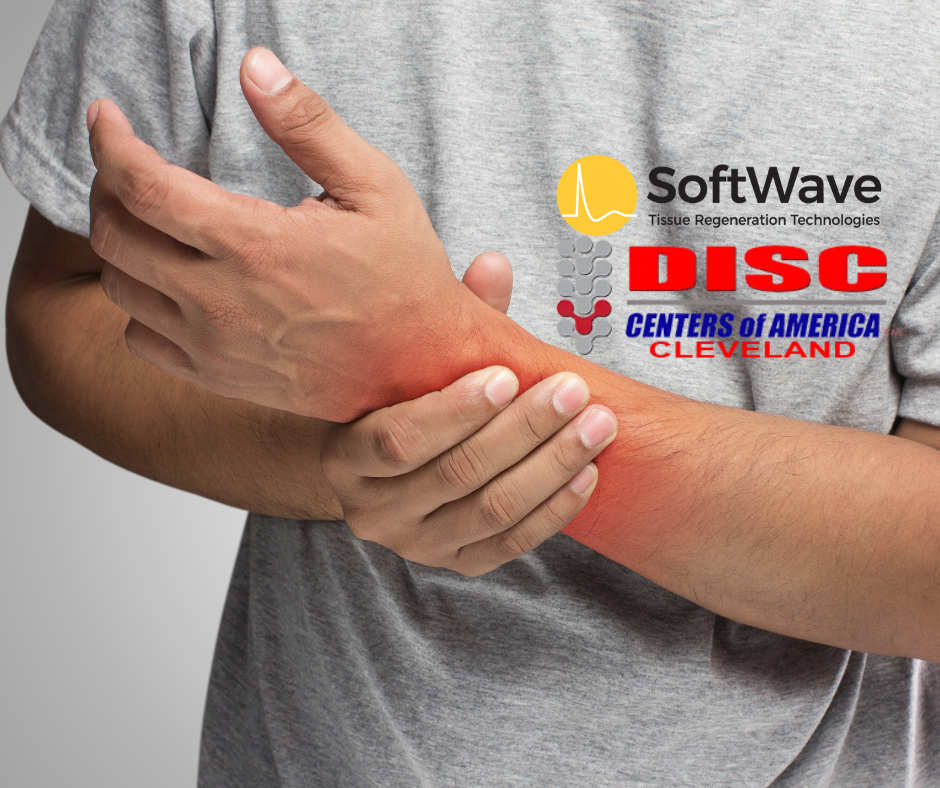
De Quervain's Tenosynovitis is a painful condition that affects the tendons in the wrist, making it difficult to perform everyday tasks such as gripping, lifting, or even holding a phone. While traditional treatments focus on managing symptoms, SoftWave Tissue Regeneration Technology (TRT) offers a breakthrough, non-invasive solution that addresses the root cause of the condition and promotes healing. At Disc Centers of America – Cleveland, Dr. Roger Huang and his team have seen fantastic results helping patients recover from De Quervain's Tenosynovitis using SoftWave Therapy.
What is De Quervain's Tenosynovitis?
De Quervain's Tenosynovitis is a condition characterized by inflammation of the tendons located on the thumb side of the wrist. Specifically, it affects the abductor pollicis longus (APL) and extensor pollicis brevis (EPB) tendons as they pass through a narrow sheath or tunnel. When these tendons become inflamed, the sheath thickens, causing pain and restricted movement.
Symptoms of De Quervain's Tenosynovitis
Common symptoms include:
- Pain and tenderness on the thumb side of the wrist
- Swelling near the base of the thumb
- Difficulty with gripping or pinching
- A catching or snapping sensation during thumb movement
- Pain that radiates up the forearm or down into the thumb
What Causes De Quervain's Tenosynovitis?
De Quervain's Tenosynovitis is typically caused by overuse or repetitive movements of the wrist and thumb. Factors that contribute to the condition include:
- Repetitive strain: Activities that require frequent gripping, twisting, or pinching motions, such as texting, gaming, or typing, can irritate the tendons.
- Injury or trauma: A direct injury to the wrist can lead to inflammation in the tendons.
- Hormonal changes: Pregnant and postpartum women are particularly susceptible due to hormonal changes and repetitive lifting of a baby.
Who Does De Quervain's Tenosynovitis Affect?
This condition can affect individuals of all ages and activity levels, but it is more common in:
- New parents: Frequent lifting of a baby, often with improper wrist positioning, can strain the tendons.
- Office workers: Those who type, use a mouse, or engage in repetitive tasks are at higher risk.
- Athletes and manual laborers: Sports and jobs involving repetitive wrist and thumb movements can lead to overuse injuries.
Traditional Treatment Options for De Quervain's Tenosynovitis
Traditional treatments for De Quervain's Tenosynovitis typically include:
- Rest and Immobilization: Splints or braces may be used to restrict thumb and wrist movement.
- Anti-Inflammatory Medications: Over-the-counter or prescription medications are often recommended to reduce pain and swelling.
- Corticosteroid Injections: Steroid injections are sometimes used to relieve inflammation, but they provide only temporary relief and come with potential side effects.
- Physical Therapy: Stretching and strengthening exercises can improve tendon function.
- Surgery: In severe cases, surgery may be recommended to release the sheath and create more space for the tendons.
While these treatments may provide temporary relief, they often focus on managing symptoms rather than promoting true healing.
How SoftWave Therapy Helps De Quervain's Tenosynovitis
SoftWave Tissue Regeneration Technology is a revolutionary therapy that addresses the root cause of De Quervain's Tenosynovitis by promoting natural healing at the cellular level. Unlike traditional treatments that mask symptoms, SoftWave Therapy stimulates the body’s repair processes to provide long-lasting relief.
The Science Behind SoftWave Therapy
SoftWave Therapy uses acoustic waves to penetrate deep into the affected tissues, triggering a cascade of biological responses, including:
- Mechanotransduction: Acoustic waves stimulate cellular activity, converting mechanical signals into biochemical responses that promote healing.
- Stem Cell Activation: SoftWave Therapy activates resident stem cells, which are responsible for repairing and regenerating damaged tissues.
- Inflammation Modulation: The therapy reduces harmful inflammation while promoting a healthy inflammatory response needed for tissue repair.
- Improved Blood Flow: SoftWave Therapy stimulates angiogenesis, the formation of new blood vessels, improving circulation and delivering oxygen and nutrients to the inflamed tendons.
Benefits of SoftWave Therapy for De Quervain's Tenosynovitis
SoftWave Therapy provides several key benefits for individuals suffering from De Quervain's Tenosynovitis:
1. Pain Relief
SoftWave Therapy modulates inflammation, reducing the pain and swelling associated with De Quervain's Tenosynovitis. Many patients experience immediate relief after treatment.
2. Non-Invasive Healing
Unlike steroid injections or surgery, SoftWave Therapy is completely non-invasive and does not involve drugs or downtime.
3. Tendon Repair and Regeneration
SoftWave Therapy promotes the repair and regeneration of the inflamed tendons, addressing the root cause of the condition rather than just masking symptoms.
4. Improved Mobility
By reducing pain and inflammation, SoftWave Therapy restores range of motion and function in the wrist and thumb, allowing you to return to normal activities.
5. Long-Lasting Results
SoftWave Therapy stimulates the body’s natural healing processes, providing sustained relief and reducing the likelihood of recurrence.
Why Patients Choose SoftWave Therapy for De Quervain's Tenosynovitis
Many patients prefer SoftWave Therapy over traditional treatments for its safety, effectiveness, and ability to provide lasting relief. At Disc Centers of America – Cleveland, Dr. Roger Huang has helped numerous patients recover from De Quervain's Tenosynovitis using SoftWave Therapy, enabling them to return to their daily lives without pain or limitation.
Schedule Your SoftWave Therapy Consultation Today!
If you’re suffering from De Quervain's Tenosynovitis and want to explore natural, non-invasive options for pain relief and recovery, SoftWave Therapy may be the solution for you. Schedule an appointment with Dr. Roger Huang and his expert team today at Disc Centers of America – Cleveland to start your journey toward lasting relief and tendon repair.
Visit us at Disc Centers of America – Cleveland for more information or request an appointment here.
- Cleveland Office: 2794 Som Center Road, Willoughby Hills, OH 44094 | Phone: 440-714-7723
- Ashtabula Office: 2709 Lake Ave, Ashtabula, OH 44004 | Phone: 440-998-2200
Let SoftWave Therapy help you recover from De Quervain's Tenosynovitis and get back to living pain-free!
‹ Back
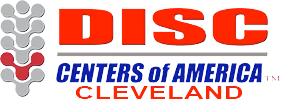


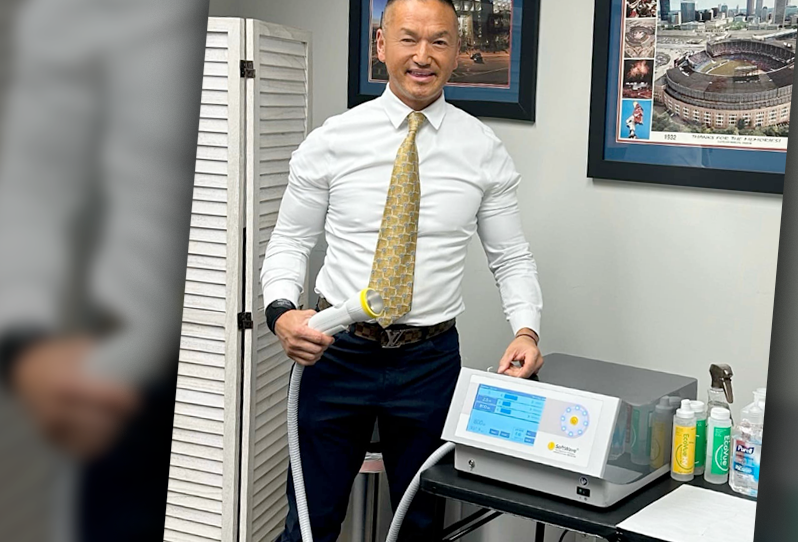
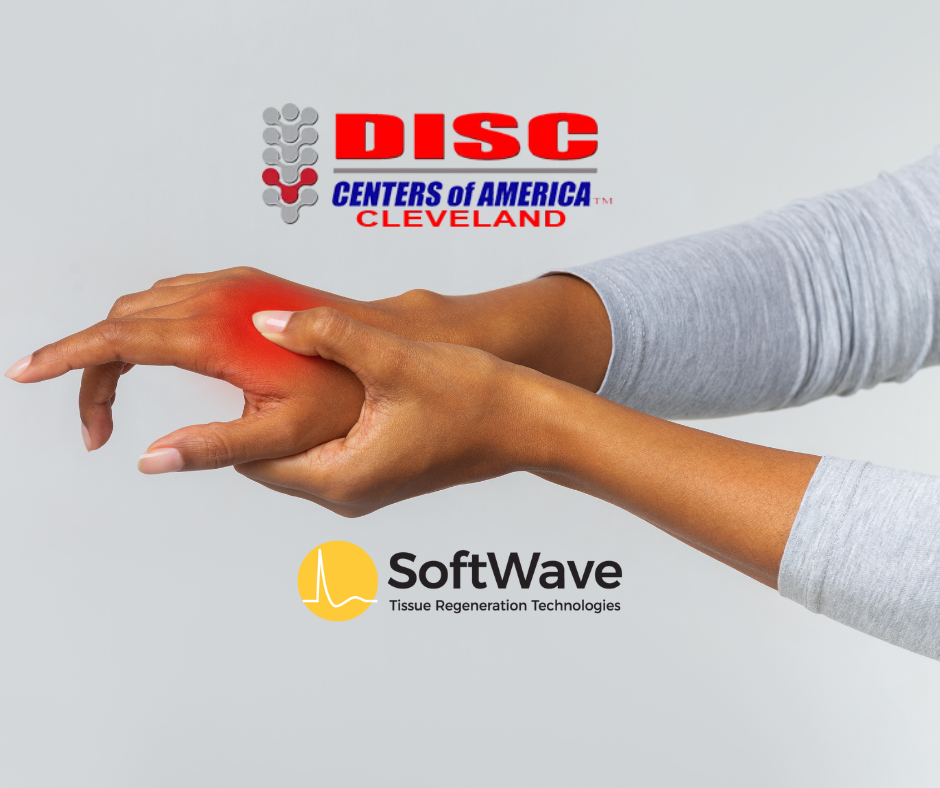
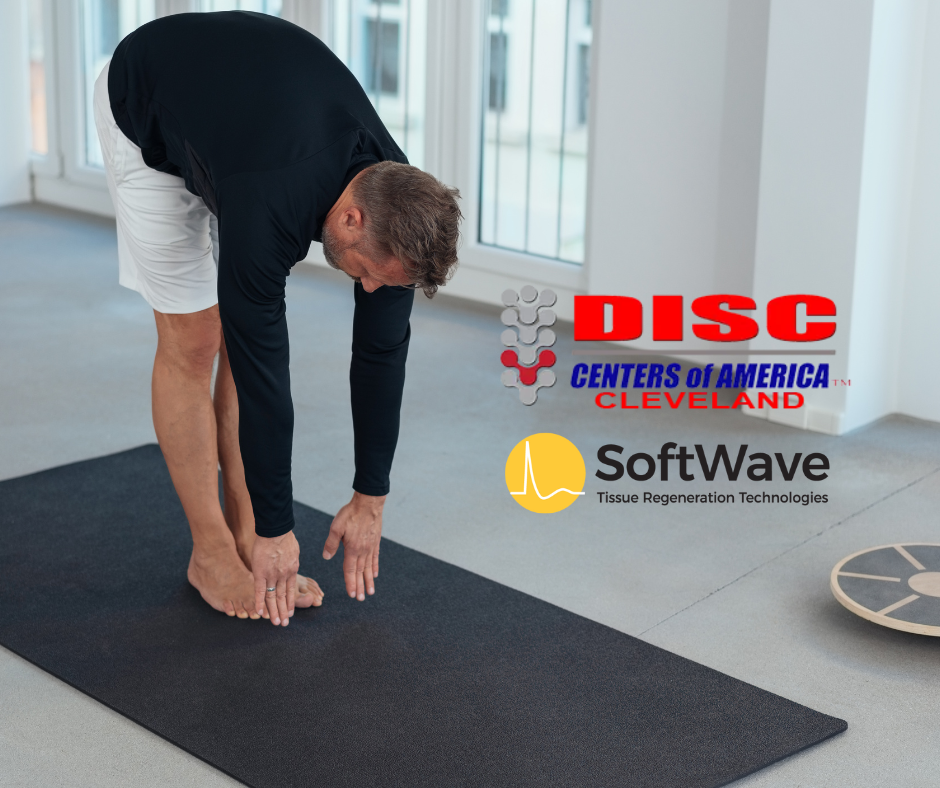

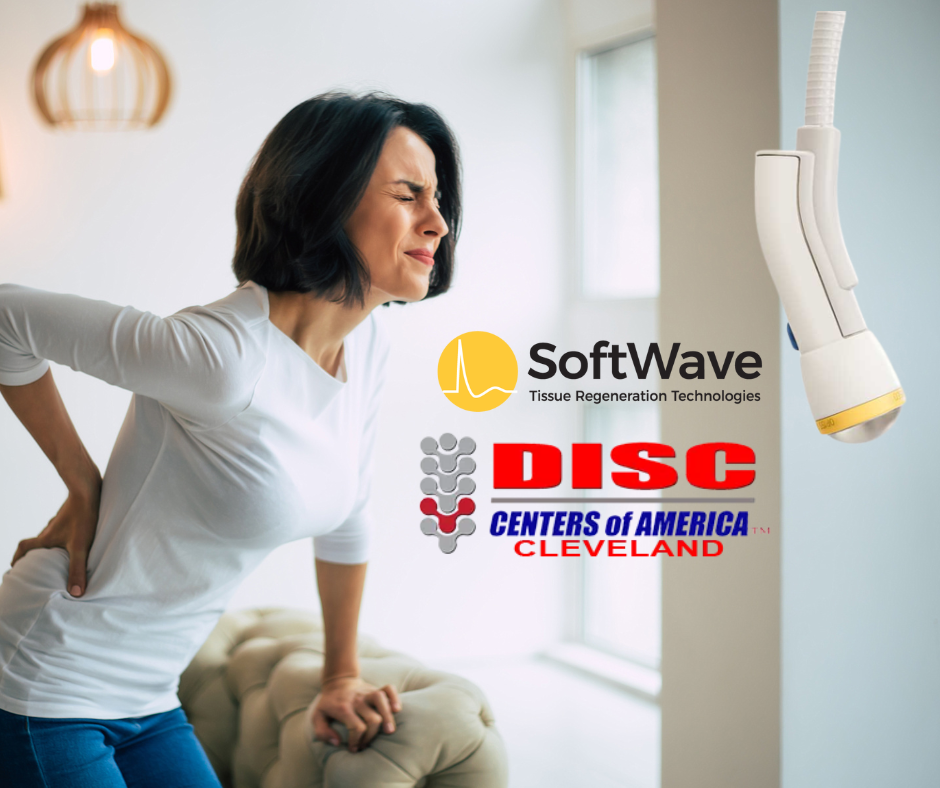

 2794 Som Center Road
2794 Som Center Road
